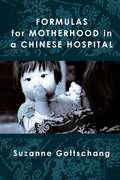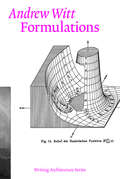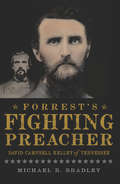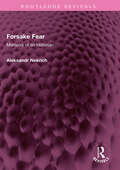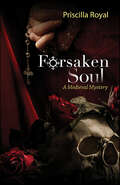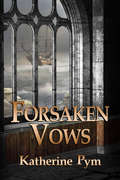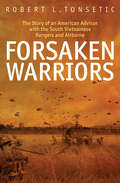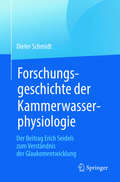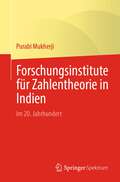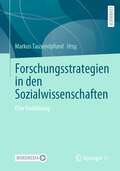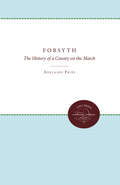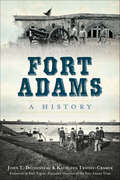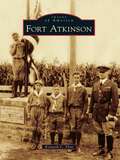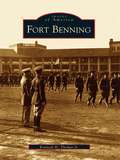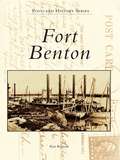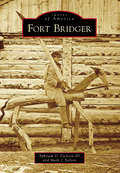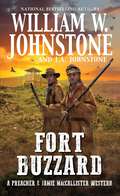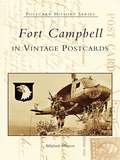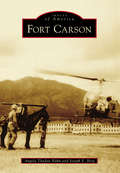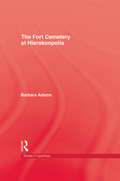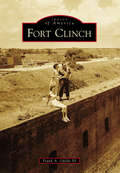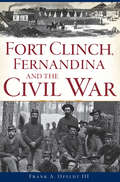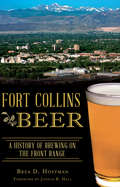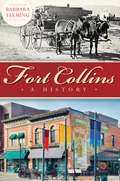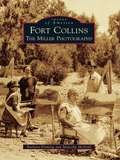- Table View
- List View
Formulas for Motherhood in a Chinese Hospital
by Suzanne GottschangWhat happens to pregnant women when the largest country in the world implements a global health policy aimed at reorganizing hospitals and re- training health care workers to promote breastfeeding? Since 1992, the Chinese government has led the world in reorganizing more than 7,000 hospitals into “Baby- Friendly” hospitals. The initiative’s goal, overseen by UNICEF and the World Health Organization, is to promote the practice of breastfeeding by reorganizing hospital routines, spaces, and knowledge in maternity wards and obstetrics clinics. At the same time, China’s hospitals in the mid- 1990s operated as sites where the effects of economic reform and capitalism increasingly blurred the boundaries between state imperatives to produce healthy future citizens and the flexibility accorded individuals through their participation in an emerging consumer culture. Formulas for Motherhood follows a group of women over eighteen months as they visited a Beijing Baby- Friendly Hospital over the course of their pregnancies and throughout their postpartum recoveries. The book shows how the space of the hospital operates as a microcosm of the larger social, political, and economic forces that urban Chinese women navigate in the process of becoming a mother. Relations between biomedical practices, heightened expectations of femininity and sexuality demanded by a consumer culture, alongside international and national agendas to promote maternal and child health, reveal new agents of maternal governance emerging at the very moment China’s economy heats up. This ethnography provides insight into how women’s creative pragmatism in a rapidly changing society leads to their views and decisions about motherhood.
Formulations: Architecture, Mathematics, Culture (Writing Architecture)
by Andrew WittAn investigation of mathematics as it was drawn, encoded, imagined, and interpreted by architects on the eve of digitization in the mid-twentieth century.In Formulations, Andrew Witt examines the visual, methodological, and cultural intersections between architecture and mathematics. The linkages Witt explores involve not the mystic transcendence of numbers invoked throughout architectural history, but rather architecture&’s encounters with a range of calculational systems—techniques that architects inventively retooled for design. Witt offers a catalog of mid-twentieth-century practices of mathematical drawing and calculation in design that preceded and anticipated digitization as well as an account of the formal compendia that became a cultural currency shared between modern mathematicians and modern architects. Witt presents a series of extensively illustrated &“biographies of method&”—episodes that chart the myriad ways in which mathematics, particularly the mathematical notion of modeling and drawing, was spliced into the creative practice of design. These include early drawing machines that mechanized curvature; the incorporation of geometric maquettes—&“theorems made flesh&”—into the toolbox of design; the virtualization of buildings and landscapes through surveyed triangulation and photogrammetry; formal and functional topology; stereoscopic drawing; the economic implications of cubic matrices; and a strange synthesis of the technological, mineral, and biological: crystallographic design. Trained in both architecture and mathematics, Witt uses mathematics as a lens through which to understand the relationship between architecture and a much broader set of sciences and visual techniques. Through an intercultural exchange with other disciplines, he argues, architecture adapted not only the shapes and surfaces of mathematics but also its values and epistemic ideals.
Forrest's Fighting Preacher: David Campbell Kelley of Tennessee (Civil War Series)
by Michael R. BradleyEvery leader needs a trusted confidant. For Nathan Bedford Forrest, one of the Civil War's greatest military minds, that man was David Campbell Kelley. Kelley began adulthood in the clergy, serving for two years as a missionary in China and returning home just a year before the Civil War. He then raised a company of cavalry from his family's large congregation that became part of Forrest's original regiment. Kelley quickly became Forrest's second in command, assisting in some of his most daring engagements, offering support in key decisions and serving as his unofficial chaplain. Following the war, Kelley returned to preaching, helped establish Vanderbilt University and launched a campaign for governor of Tennessee. Now, for the first time, author Michael R. Bradley brings Kelley's dynamic life to the fore.
Forsake Fear: Memoirs of an Historian (Routledge Revivals)
by Aleksandr M NekrichFirst published in 1991, Forsake Fear is the history of historians in post-war Soviet society. Nekrich, in recounting his own brave story, tells us how he dared to challenge the prevailing conformism. From his unique ad riveting vantage point, Nekrich also provides a broader picture of Soviet society and its intellectual life during high Stalinism and after. In 1945, Aleksandr Nekrich returned from the front. He spent the next three decades at the centre of the Soviet historical profession. He maintained friendships with such noted public figures such as Ivan Maisky, Soviet ambassador to Britain, and Abram Deborin, whom Stalin branded a ‘Menshevik-idealist.’ He also encountered writers, artists, scientists, and even spies. Among Soviet historians, Nekrich was the only one who dared to break the taboo and declare that the Stalin-Hitler pact was advantageous to Nazi Germany. This book will be of interest to students of history, literature, international relations, and political science.
Forsaken Soul (Medieval Mysteries #5)
by Priscilla RoyalThe summer of 1273 is peaceful for most of England, but not for Prioress Eleanor of Tyndal Priory. Her friend, Crowner Ralf, is newly widowed with a baby. And her new anchoress is welcoming visitors to her window at night: one of them a man the prioress secretly loves. Now his loyalty to her as head of Tyndal Priory is suspect. Then Martin the Cooper is poisoned at the local inn. Martin had a wealth of enemies. The killer could be any of them. No one likes the direction the evidence points, but God's justice must be rendered even for the most forsaken soul."Against an authentic backdrop of medieval life and lore, Royal once again brings alive characters who are true to their period yet exhibit emotions and feelings that 21st-century readers will recognize as their own." —Publishers Weekly starred reviewPriscilla Royal lives in Northern California. Forsaken Soul is her fifth Medieval Mystery. www.priscillaroyal.com
Forsaken Vows
by Katherine PymLondon 1661, the new king is on the throne, but old religious beliefs and Medieval superstition still prevail. Catholics are not tolerated in this new era. Edgar and Emmatha Torbet are papists and fraternal twins, which means their mother was an adulteress. One of them is a legitimate heir, the other is a bastard. Which one of them is it?
Forsaken Warriors
by Robert TonseticAn inside account of the South Vietnamese elites who strove to carry on the war against the Communists during the US Army's withdrawal . . . The book is a personal memoir of the author's service as a US Army advisor during the end stages of America's involvement in Vietnam. During the period 1970-71, the US was beginning to draw down its combat forces, and the new watchword was "Vietnamization." It was the period when the will of the US to prosecute the war had slipped, and transferring responsibility to the South Vietnamese was the only remaining hope for victory. The author served as a US Army advisor to South Vietnamese Ranger and Airborne units during this critical period. The units that the author advised spearheaded several campaigns in South Vietnam, Cambodia, and Laos, as the US combat units withdrew. Often outnumbered and outgunned, the elite Ranger and Airborne units fought Viet Cong and North Vietnamese units in some of the most difficult terrain in Southeast Asia, ranging from the legendary U Minh forest and Mo So mountains in the Mekong Delta to the rugged hills of southern Laos. The role of the small US advisory teams is fully explained in the narrative. With little support from higher headquarters, these teams accompanied the Vietnamese units on highly dangerous combat operations over which they had no command or control authority. When US advisors were restricted from accompanying South Vietnamese forces on cross-border operations in Cambodia and especially Laos, the South Vietnamese forces were badly mauled, raising concerns about their readiness and training, and their ability to operate without their US advisors. As a result, a major effort was placed on training these forces, while the clock continued to run on the US withdrawal. Having served with a US infantry battalion during the peak years of the US involvement in Vietnam, Robert Tonsetic--the acclaimed author of Days of Valor--is able to view the war through two different prisms and offer criticisms and an awareness of the South Vietnamese armed forces were ultimately defeated.
Forschungsgeschichte der Kammerwasserphysiologie: Der Beitrag Erich Seidels zum Verständnis der Glaukomentwicklung
by Dieter SchmidtEnde des 19. und zu Beginn des 20. Jahrhunderts gab es sehr unterschiedliche experimentelle Befunde zur Physiologie der Kammerwasserwege. Mit seinen Untersuchungen zeigte Erich Seidel, dass der Ziliarkörper das Sekretionsorgan des Auges ist. Seine bedeutenden zahlreichen und umfangreichen Publikationen, die sich mit Fragen der intraokularen Flüssigkeitsströmung und mit dem Glaukom befassten, erschienen in der Zeit von 1916 bis 1932. Mit seinen neuen Erkenntnissen setzte er sich trotz Widerspruchs mehrerer Augenärzte durch und trug damit entscheidend zum besseren Verständnis der Glaukomentwicklung bei.
Forschungsinstitute für Zahlentheorie in Indien: Im 20. Jahrhundert
by Purabi MukherjiDieses Buch versucht, die schrittweise Entwicklung der wichtigsten Forschungsinstitute zur Zahlentheorie in Südindien, Punjab, Mumbai, Bengalen und Bihar zu beschreiben, einschließlich der Gründung des Tata Institute of Fundamental Research (TIFR) in Mumbai, einem bahnbrechenden Ereignis in der Geschichte der Zahlentheorie-Forschung in Indien. Die Forschung zur Zahlentheorie in Indien begann in der modernen Zeit mit dem Auftreten des ikonischen Genies Srinivasa Ramanujan, das Mathematiker auf der ganzen Welt inspirierte. Das Buch diskutiert die nationale und internationale Wirkung der Forschung indischer Zahlentheoretiker und enthält eine sorgfältig zusammengestellte, umfassende Bibliographie bedeutender indischer Zahlentheoretiker des 20. Jahrhunderts. Es ist wichtig für die historische Dokumentation und eine wertvolle Ressource für Forscher auf diesem Gebiet. Das Buch diskutiert auch kurz die Bedeutung der Zahlentheorie in der modernen Mathematik, einschließlich Anwendungen der Ergebnisse indigener Zahlentheoretiker in praktischen Bereichen. Da das Buch aus der Perspektive der Wissenschaftsgeschichte geschrieben ist, wurden technische Fachbegriffe und mathematische Ausdrücke so weit wie möglich vermieden.Die Übersetzung wurde mit Hilfe von künstlicher Intelligenz durchgeführt. Eine anschließende menschliche Überarbeitung erfolgte vor allem in Bezug auf den Inhalt.
Forschungsstrategien in den Sozialwissenschaften: Eine Einführung
by Markus TausendpfundTrotz unterschiedlicher Themen und Fragestellungen sind Forschende und Studierende bei der Durchführung eines Forschungsprojekts immer wieder mit vergleichbaren Herausforderungen konfrontiert: eine relevante Forschungsfrage muss entwickelt und der meist umfangreiche Forschungsstand prägnant präsentiert werden. Daran anknüpfend müssen die zentralen Konzepte eines Forschungsprojekts spezifiziert und valide Operationalisierungen dieser Konzepte entwickelt werden. Schließlich müssen Untersuchungsobjekte ausgewählt und die geeignete Untersuchungsmethode festgelegt werden. Dieser Band behandelt die typischen Herausforderungen eines sozialwissenschaftlichen Forschungsprojekts und bietet Informationen, um diese Herausforderungen (besser) meistern zu können.
Forsyth: The History of a County on the March
by Adelaide L. Fries Stuart Thomas Wright J. Edwin HendricksThis is a carefully researched and completely rewritten version of Adelaide Fries's 1949 history that traced the Forsyth story from its Moravian beginnings through the joining of Winston and Salem and concluded with a forward look to Wake Forest College as a key to future cultural growth. The authors emphasize the contributions of the county beyond the city limits, reflecting the growing social and economic importance of the suburban and rural area in the past twenty-five years.Originally published in 1976.A UNC Press Enduring Edition -- UNC Press Enduring Editions use the latest in digital technology to make available again books from our distinguished backlist that were previously out of print. These editions are published unaltered from the original, and are presented in affordable paperback formats, bringing readers both historical and cultural value.
Fort Adams: A History (Landmarks)
by John T. DuchesneauFort Adams has a rich and illustrious history as defender of Narragansett Bay. On the shores of Newport, Rhode Island, the fort was named for the nation's second president, John Adams. Humbly beginning as an earthwork in 1776, it remained an active fort until its permanent closure in 1950. Fort Adams stood guard during the American Revolutionary War, Mexican-American War, Civil War and Spanish-American War, as well as World Wars I and II. Now a state park, Fort Adams is fully restored to its former glory of days past. Authors John T. Duchesneau and Kathleen Troost-Cramer explore the history of the most notable commanding officers of the fort, the changing role of women within the Fort Adams community and the legacy left behind by the families who called the fort home.
Fort Atkinson (Images of America)
by Kenneth C. FlintFort Atkinson has been called the "top historical spot in Nebraska," the "SAC of 1820," and "America's most important Western outpost." Once the country's largest fortress beyond the Missouri River, its garrison protected America's interests in the burgeoning fur trade, provided a base camp for explorations, played host to famous frontiersmen, and was the site where numerous treaties were signed. But by 1961, Fort Atkinson was endangered. The fort's buildings had vanished over 100 years before. Decades of farming on the land had nearly erased its footprint. A housing development threatened to obliterate the site forever. There was only a marker with a flagpole raised in 1927 by the Daughters of the American Revolution--a lonely object in the midst of an empty plain. This book tells the story of how that lost fortress was restored to become the major state historical park it is today.
Fort Benning (Images of America)
by Kenneth H. Thomas Jr.Established outside Columbus, Georgia in October 1918 by the United States Army as Camp Benning, the base was moved to its permanent location, nine miles south, in June 1919. In 1922, the post was made permanent and was named Fort Benning. Created as the new location of The Infantry School of Arms, Fort Benning became the training post for many of the country's future leaders, as well as a major part of the military experience for hundreds of thousands of American soldiers.The post's current size, more than 180,000 acres, has long made it recognized as one of the largest infantry bases in the world. Named for Gen. Henry L. Benning of Columbus, the installation has had a major impact on the economic and social life of nearby Columbus. Images of America: Fort Benning features vintage photographs and postcards, mostly from 1918 to 1978, showcasing the first 60 years of the base's 85-year history. Included are scenes of the temporary encampment on Macon Road and the early wooden encampment on the Main Post. The permanent buildup from the late 1920s to the early 1940s is shown in photographs of The Infantry School, the Officers' Club, Main Post Chapel, Doughboy Stadium, Gowdy Field, the Jump Towers, Lawson Field, the Cuartel Barracks, and the officers' quarters, as well as Riverside, the Commandant's Home, formerly the Bussey Plantation. Activities and events include military reviews, visits of presidents, and the National Infantry Museum's dedication. Generals who served there and are featured include Bradley, Eisenhower, Marshall, and Patton.
Fort Benton (Postcard History Series)
by Ken RobisonFort Benton, the head of navigation on the Missouri River, is known as the "Birthplace of Montana." Its history spans every era in Montana's development. Founded in 1846 as a fur-trading post, it is Montana's oldest continuous settlement. Arrival of the first steamboats and completion of the Mullan Road in 1860 heralded the steamboat era, bringing gold seekers, merchant princes, scoundrels, soldiers, North West Mounted Police, and eventually women and children to the wild frontier. Then came the railroads, open-range ranching, and homesteaders by the thousands. Today Fort Benton serves the agricultural Golden Triangle and presents its colorful history through cultural tourism.
Fort Bridger (Images of America)
by Ephriam D. Dickson III Mark J. NelsonThe history of Fort Bridger represents a microcosm of the development of the American West. Situated in an area initially inhabited by the Shoshone people, Fort Bridger was established during a transitional phase between the fur-trade era and the period of western migration. The fort became one of the most important supply points along the nation's western trail network. Later, the post served as a bastion of civilization as one of a number of western military posts. Soldiers at the fort protected not only the lives and property of its local citizenry but also the emerging transportation and communication advancements of a nation. Following the Army's departure, a small settlement emerged at Fort Bridger, using buildings and materials from the old military garrison. Today, the fort and town remain active, in part as a respite for travelers just as it had been more than 150 years ago.
Fort Buzzard (A Preacher & MacCallister Western #6)
by William W. Johnstone J.A. JohnstoneJohnstone Country. Where Every Road Leads to Death. Preacher and Jamie McCallister head for the hills to uncover the truth behind a gruesome mountain massacre—and find themselves trapped in a nest of merciless, sadistic killers. . . .FORT BUZZARD They were innocent men, slaughtered in the Rockies. A party of land surveyors who met their grisly fate at the hands of the Crow Indians—or so it seems. Some folks think the story is a lie. And now it&’s up to U.S. Army Lieutenant Ron Stanton to figure out what really happened up there in those desolate, bloodsoaked mountains. As his guides, Preacher and Jamie McCallister agree to retrace the footsteps of the doomed party—come hell or high water—but first they&’ll have to pass through a particularly nasty piece of purgatory known as Fort Buzzard . . . Fort Buzzard—officially Gullickson&’s Fort—earned its nefarious nickname because of the human vultures it attracts. Namely the brutes and brawlers hired by Gullickson to protect his interests. When a nearby trading post is suddenly attacked—and two young women carried off by Indians—Preacher and McCallister smell a rat. The Crows swear they&’re not responsible for the attack, the abduction, or the mountain party massacre. Preacher and McCallister believe them—but proving it won&’t be easy. This road to justice only leads to more dead ends—and the biggest, bloodiest showdown in Rocky Mountain history . . .Live Free. Read Hard.
Fort Campbell in Vintage Postcards (Postcard History Series)
by Billyfrank MorrisonSince its establishment in 1941, Fort Campbell, Kentucky, has grown to approximately 30,000 soldiers on over 100,000 acres. With its Southern culture, the base has a rich and interesting history. German prisoners of war were held here during World War II, and Campbell Army Air Field has always been a favorite stopover of NASA shuttle crews. Fort Campbell units have inspired numerous movies and books, such as Black Hawk Down, Band of Brothers, and ShadowWarriors. Through over 200 vintage postcards and photographs, this pictorial history tells the unique story of an army base and its brave soldiers who have fought to defend our country.
Fort Carson (Images of America)
by Angela Thaden Hahn Joseph E. BergArmy scout Kit Carson rode the Southwest in many capacities. He served and retired in Colorado, and so Fort Carson is appropriately named. On land once traversed by Lt. Zebulon Pike, Camp Carson was constructed almost overnight under the watchful eye of Pres. Franklin Roosevelt and with the approval of the neighbors in Colorado Springs. Since its creation, the post has been the home and training grounds for thousands of soldiers who have fought in all wars from World War II to the current war on terror. Fort Carson continues to be a valuable asset to the community economically and in its generosity with resources when a local need arises.
Fort Cemetery At Heirakonpolis
by AdamsFirst published in 1988. Routledge is an imprint of Taylor & Francis, an informa company.
Fort Clinch (Images of America)
by Frank A. Ofeldt IIIAs part of the third system of fortifications built for harbor defense, Fort Clinch was constructed from 1847 to 1867. Serving in three wars, the Civil War, Spanish-American War, and World War II, the fort never saw battle and was never fully completed. Offered for public sale in 1926, Fort Clinch was sold by its owners to the State of Florida in 1935 and became one of the first nine Florida state parks. The fort was partially restored by the Civilian Conservation Corps from 1937 to 1942. Later, the Florida Park Service performed a more comprehensive restoration from 1963 to 1971 and created one of the finest living history programs in the country, offering an interpretation of Fort Clinch as it was in 1864, when the federal army occupied the fort and Amelia Island. Today, Fort Clinch State Park offers a wide range of recreation resources to visitors.
Fort Clinch, Fernandina and the Civil War (Civil War Series)
by Frank A. Ofeldt IIIEven though Fernandina was tucked away in the far southern reaches of the Confederacy, Fort Clinch had been abandoned to Federal forces by March 1862. It proved a boon to the Union war effort, and the island became a haven for runaway slaves, with many joining the Federal army. The military occupation of this vital seaport helped end the war, and the Reconstruction period that followed bore witness to Union and Confederate veterans working together to bring Fernandina into a golden era of prosperity. Author and local historian Frank A. Ofeldt III captures the vital and under-told story of Amelia Island during the Civil War.
Fort Collins Beer: A History of Brewing on the Front Range (American Palate)
by Brea D. Hoffman Foreword By HallAlthough alcohol arrived with the first settlers in Fort Collins, Prohibition lingered until 1969. But the city was one of the first to latch onto the burgeoning craft beer movement. In 1989, Old Colorado Brewing Company paved the way as the city’s first microbrewery. And with the inception of breweries like Odell and New Belgium, local beer soon saw a strong resurgence followed by popularity nationwide. By 2010, a new generation of breweries, like Funkwerks and Equinox Brewing, emerged. Brea D. Hoffman divulges the history of Fort Collins’s evolving beer scene.
Fort Collins: A History
by Barbara FlemingWhile today's Fort Collins is a popular destination for foodies and weekend adventurers, it was once a lonely military outpost poised on the nation's frontier. Cattle rustlers and trigger-happy cowboys walked an uneasy line between saloon doors and the hangman's noose. By 1895, Fort Collins had lost some of its gritty edge, and it became a dry town full of churches, sheep ranches and sugar beet farms. The city was again transformed over the past century into a community that embraced a thriving beer culture and green living. Local historian Barbara Fleming traces the story of the Choice City from its early pioneer days through its modern renaissance.
Fort Collins: The Miller Photographs
by Barbara Fleming Malcolm McneillPhotographer Mark Miller opened his studio in Fort Collins, Colorado, in 1914. The town he chose to live and work in sits in a river valley in northern Colorado, nestled between the Rocky Mountain foothills and the semiarid high plains, with Denver to the south and Cheyenne, Wyoming, to the north. Established as a Civil War-era army post, the town was a Wild West frontier outpost until it was tamed in the 1870s by the arrival of a land-grant college and the railroad. By the turn of the century, Fort Collins had become a quietly respectable college town with a thriving economy and steadily increasing population. Over almost six decades, as the small town evolved into a city, Miller photographed people, businesses, and landscapes. Fort Collins: The Miller Photographs offers a representative sampling of the over 70,000 Miller images, a collection housed at the Fort Collins Museum's Local History Archive.
